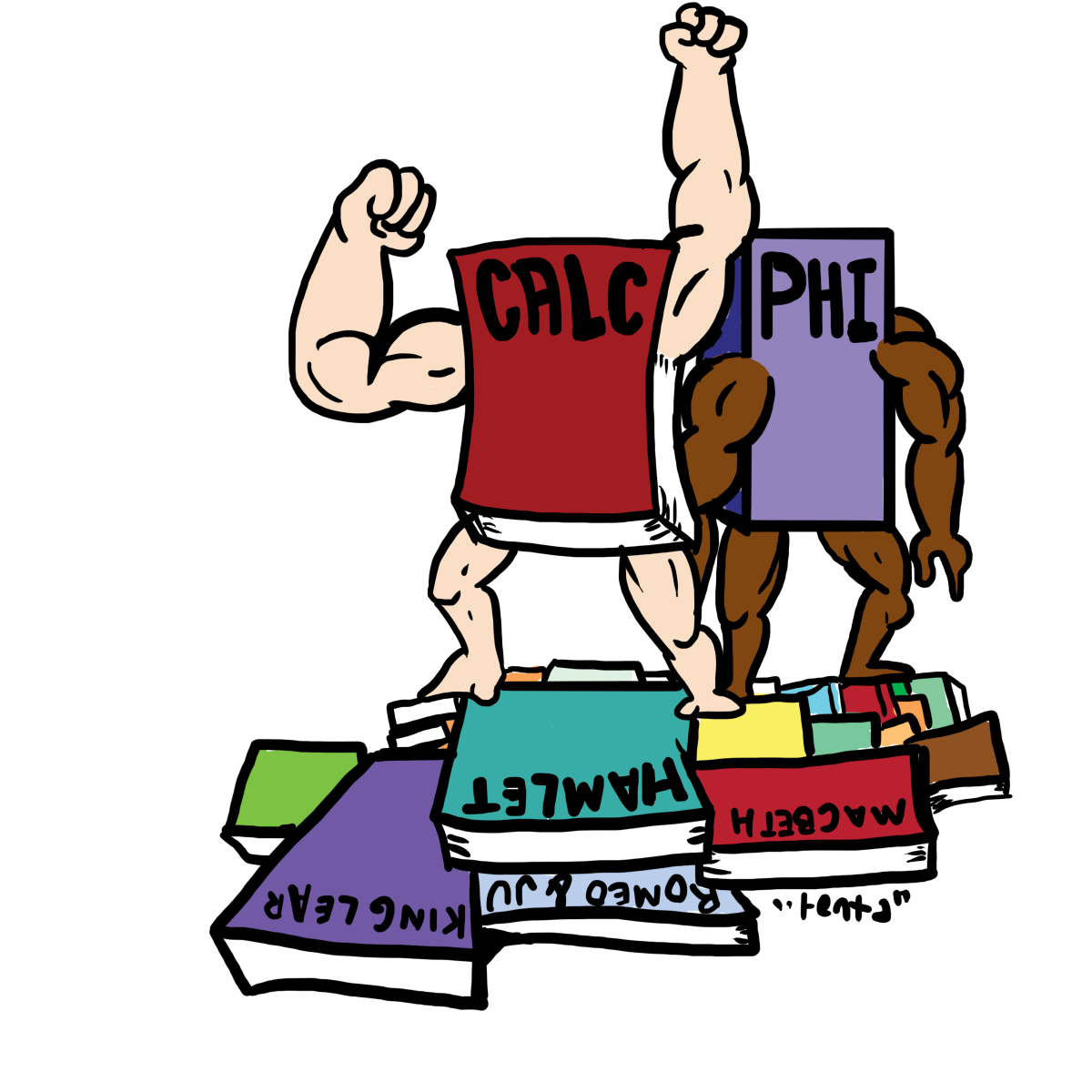Think back to your high-school English class where fictional works by Shakespeare and Hemingway were the norm. Nonfiction narratives may soon replace these English classics, according to a new initiative that College Board, an educational institution, will soon undertake.
According to National Public Radio, College Board President David Coleman has been a key influence in the plan that will redesign the high school English curriculum. The strategy of the Common Core Standards Initiative will add more nonfiction works to students’ reading lists to better prepare them for university-level coursework.
Curriculum and instruction graduate research assistant Shea Kerkhoff Vessa said she believes the initiative will push high school teachers to increase the rigor in their classrooms.
“I think a lot of good teachers out there are already doing this,” Vessa said. “Those who aren’t will re-examine what works to try to align what they are doing in their classes with the expectations of college.”
The initiative also seems to place heavy emphasis on rhetoric. Daniel Synk, a graduate assistant in Communication, Rhetoric and Digital Media, hones in on this concept when teaching his English 101 classes. Synk said he witnessed more rhetoric taught as opposed to literature while he was an undergraduate and master’s student at the University of Maryland, and as a doctoral student at N.C. State.
“I think the best way to prepare for college coursework is for students to have practice with independent thinking, question what is presented to them, and think about implications of things instead of what they are explicitly,” Synk said.
Synk said he agrees with the initiative in the context of connections through secondary sources.
“Connections between texts are an important part of academic research, and I think that it is an important part of research at N.C. State,” Synk said.
Synk said he also noticed an increased trend in recent decades toward nonfiction in English education.
“I don’t see this as a problem, but I don’t think that fiction should be removed from the curriculum,” Synk said.
“English is the only compulsory class where students are encouraged to think differently, to be imaginative and creative, and if we take fiction out of the English curriculum, where are our kids going to get that?” Vessa said. However, neither Synk nor Vessa said the initiative would take fiction away from the high school English curriculum completely.
According to Vessa, imagination and creativity are strengths of the United States’ education system.
“I think students are prepared in that they have been given a variety of courses to take, there are other countries where that isn’t true,” Vessa said. According to Vessa, allowing students to take both fine arts and technical courses is valuable because it gives students the chance to develop their strengths.
Vessa said she still values the teaching of nonfiction, but favors an interdisciplinary approach in regard to English education.
“History and science teachers need to teach literacy skills because the English department is too packed already,” Vessa said.
Employing Vessa’s approach may allow high school English teachers to focus on other areas that are necessary for student success in college. According to Synk, his students generally have the most trouble deciphering academic prose.
Both Synk and Vessa said they believe the success of the student has to do with a number of factors.
Often, standardized tests measure success. According to an NPR report, “Reading scores for American students have dropped dramatically …”
“I think people rise to the highest expectation on them. It’s hard to increase the expectation on yourself if outside expectations are low,” Vessa said.
Synk said educational leaders might need to examine the “metrics” of how standardized tests are scored and what these scores mean.
Regardless of how success becomes reality, one thing is for sure: English education will change.
“I think the focus will change to looking at the power of language versus the beauty of language,” Vessa said. Vessa hopes that this change promotes reflection on what students should be getting out of their high school experience and which methods work best in order to achieve this experience.








